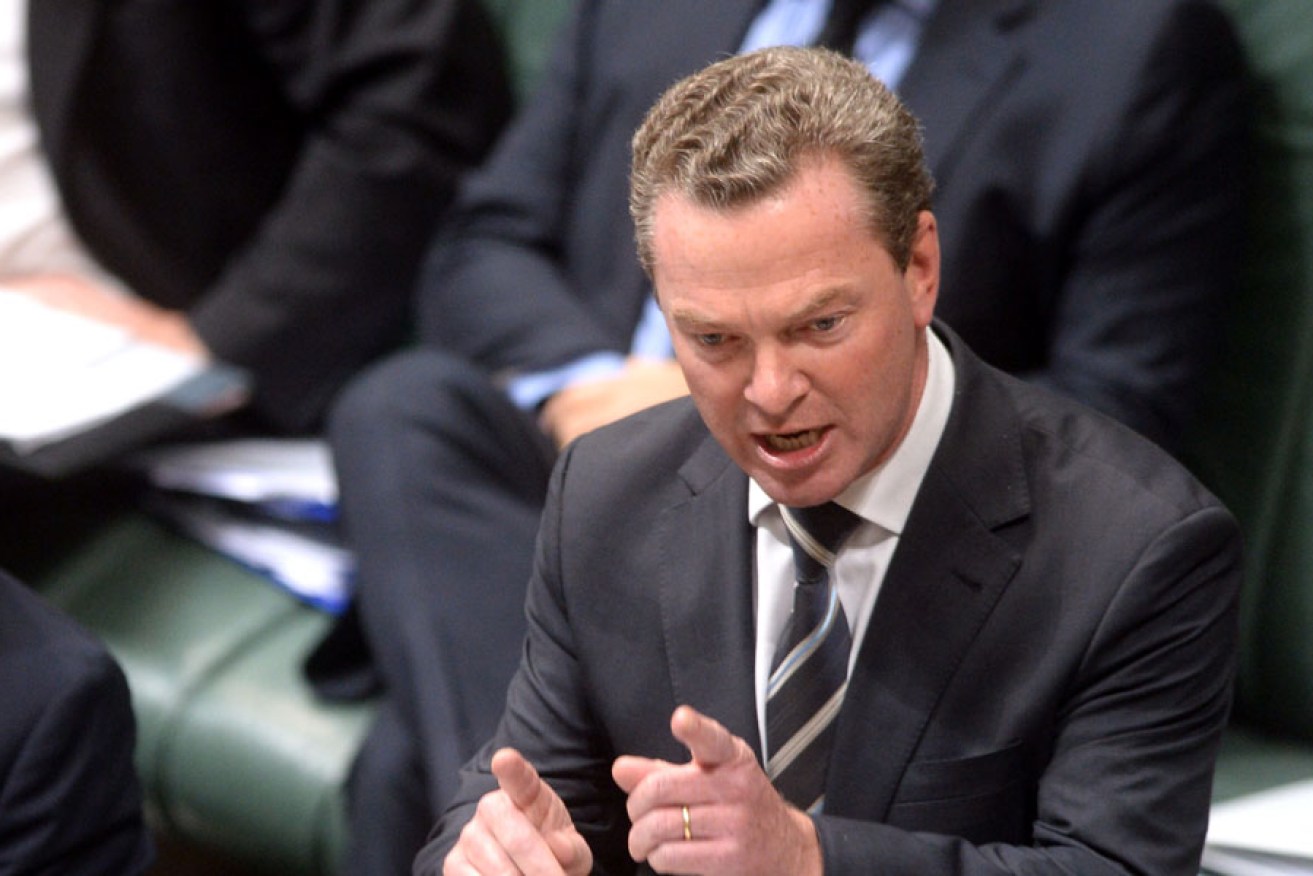Gonski gone – what can be salvaged?

Federal Education Minister Christopher Pyne
Federal Education Minister Christopher Pyne has managed to upset the states and the education community with his declaration to “go back to the drawing board” on the Gonski funding scheme.
Although Pyne’s announcement will feel like a bombshell to many, some in the education community saw it coming. During the election, Pyne switched from saying not very much on school funding, to only committing a Coalition government to four years of funding under a “unity ticket” on education. But the previous government’s agreements with the states were for six years, with the bulk of the money going out to schools in the last two years, beyond the forward estimates.
In his statements, Pyne has said the new funding scheme is unimplementable and will need to be changed to a “flatter” and “simpler” system after 2014. While Pyne has emphasised that the funding envelope will remain the same, the Coalition’s election commitment that no school will be worse off under the new arrangements is in doubt.
So if the Coalition government is going to start anew, what should happen next?
It’s not the money that matters
Money alone doesn’t deliver quality schooling. Post-war governments poured money into school systems, on the assumption that more resources would automatically deliver better schools, only to have this dispelled by researchers in the 1980s who demonstrated the weakness of the link between additional funding and school performance.
Finland’s education system consistently outranks other OECD countries, even though their proportion of GDP allocated to school education is only slightly above the OECD average.
Anything post-Gonski in Pyne’s simpler, flatter alternative to be developed over the next year, will need to therefore address more than just the overall dollar amount given to schools.
Quality is key
If Pyne is going to dismantle Labor’s school funding scheme, then his alternative needs to foster quality teaching and learning.
Policies and practices to promote school improvement were the central focus of both the National Partnership Agreements negotiated by the federal government in 2008 and the Gonski scheme, within its comprehensive national school improvement plan.
Pyne has promised there will be “less control from Canberra” but has said very little about the urgent need for national school reform. In contrast, the existing agreements are based on agreed plans with education systems to implement best practice in school improvement.
Let’s hope Pyne’s desire to produce a “flatter” and “simpler” funding model does not result in the abandonment of agreed policy goals such as encouraging schools to focus on educational attainment; raising expectations among students, teachers and parents; making teaching more student-centred and responsive to individual learner needs; and delivering education in partnership with other service providers and with the school’s external community.
The tail should not wag the dog
The Coalition’s argument that it is trying to wind back the Commonwealth government’s role by dismantling the previous federal government’s “command and control” system is misleading. Under the Australian Constitution, the federal government has no responsibility for education.
While the federal government’s right to provide funding for schools has been upheld by the High Court, it has no power to intervene in the running of schools or systems. Yet since the 1960s, national governments of both political persuasions have tried to influence Australian schooling through federal funding schemes with onerous conditions attached, which are widely discredited as ineffectual attempts to get “the tail to wag the dog”.
The former Labor government repudiated this approach in its first term, when it abolished all but one of a raft of long-standing Commonwealth schools programs in 2009. Under the National Partnership Agreements negotiated with each state and territory during 2008, a dozen federal schools funding programs were rolled into single bilateral agreements.
The only federal program remaining was the recurrent funding scheme for non-government schools, which was retained pending the outcome of the Gonski review in 2011.
This program was finally abolished with the passage of the Australian Education Act in 2013, which saw all recurrent funding rolled into the National School Improvement Plans from 2014 – the funding agreements that Pyne now labels “a mess”.
Ironically, the Coalition government appears intent on introducing a new federal program that intervenes explicitly in the management of state education systems, through its A$70 million Independent Public Schools Fund. In addition to this initiative, Pyne has also announced a federal government takeover of all national data collection and reporting functions, which to date has been managed by the Australian Curriculum, Assessment and Reporting Authority (ACARA), a federal agency governed by a board comprised of state and territory education authorities and education stakeholders.
In one of his first speeches as education minister, Pyne announced his intention to transfer all the “data, reporting and compliance functions” currently performed ACARA to the federal education department – a decision that sits oddly with his professed commitment to less “command and control” by the Commonwealth.
A legacy gone
The funding agreements now being reviewed by Pyne were based on a bipartisan national consensus between state and federal governments which recognised the need for school reform and was committed to evidence-based school improvement.
They represent the culmination of efforts by both Labor and Coalition governments since the late 1980s to move beyond the “blame game” that was typical of federal interventions in the past. Given current concerns about the performance of Australian schooling, the new federal education minister places much at risk by trampling over this legacy.
Louise Watson is Professor and Director of The Education Institute at the University of Canberra.
This article was first published at The Conversation.




